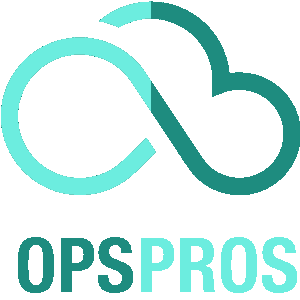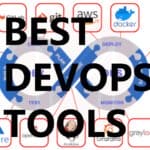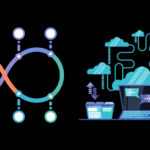Treating compliance as an afterthought in DevOps is a risky business. I’ve seen numerous organizations pay the price in legal repercussions and lost customer trust. Underestimating the importance of compliance can be catastrophic. Instead, bake compliance into your DevOps from the start. The results? Safer processes, better products, and a happier team.
Early Integration of Compliance
Incorporate compliance tasks early in the software development lifecycle (SDLC). This is essential. Identify and address compliance and security issues before they become significant problems. Early integration ensures compliance isn’t an afterthought but a fundamental part of the development process.
When you integrate compliance early, you mitigate risks. You avoid costly fixes down the line. Your team becomes proactive rather than reactive. This shift in approach leads to more robust, secure software.
Automation of Compliance Processes
Automation plays a crucial role in managing compliance within DevOps. Automated tools can handle time-consuming tasks. These include managing pull requests, access restrictions, failovers, and code reviews. Automation ensures compliance rules are consistently followed. It reduces the risk of human error.
Imagine having a system that flags non-compliance immediately. This system can run checks continuously. It can ensure every code change meets regulatory standards. Automation makes this possible.
Compliance Automation Tools
| Tool Type | Function |
|---|---|
| Database Compliance | Check for policy adherence, identify gaps, support audit reporting |
| Application Code Compliance | Enforce secure coding standards, analyze software composition |
| Infrastructure Compliance | Detect configuration changes, enforce policies across the infrastructure |
| Open Source Software Compliance | Monitor OSS for security, license compliance, inventory management |
These tools help maintain compliance throughout different stages of development.
Continuous Auditing

Auditing should be performed at all stages of the CI/CD pipeline. Not just at the production stage. Continuous auditing helps identify compliance issues early. It ensures every phase of the pipeline meets necessary requirements. This approach allows for prompt resolution of any problems.
Frequent audits build a culture of accountability. They help maintain high standards consistently. Your team learns to view compliance as part of their daily routine.
Frequent Audit Trails
Conduct frequent audit trails. This ensures compliance is maintained throughout development and deployment processes. This practice helps identify and resolve issues promptly.
Multidisciplinary Teams
Compliance should be a shared responsibility. All teams involved in the development lifecycle should participate. This includes developers, IT operations, and security teams. A collaborative approach ensures everyone is aware of compliance requirements. It also allows all team members to contribute to maintaining them.
Role-Based Access Control (RBAC)
Implement Role-Based Access Control (RBAC). Ensure only authorized personnel can access and modify systems. This control is crucial for maintaining security and compliance.
Documentation and Traceability
Maintaining thorough documentation is critical. Use unified, trackable version control systems. This helps manage documentation efficiently. Ensure all changes are well-documented and traceable. This practice is vital for audits and regulatory reporting.
Visual Information and User Interfaces
Use visual aids and user-friendly interfaces. This helps teams understand and manage compliance requirements more effectively. Visualizations can display test executions, track changes, and indicate access restrictions. This makes compliance management more accessible.
Challenges in DevOps Compliance
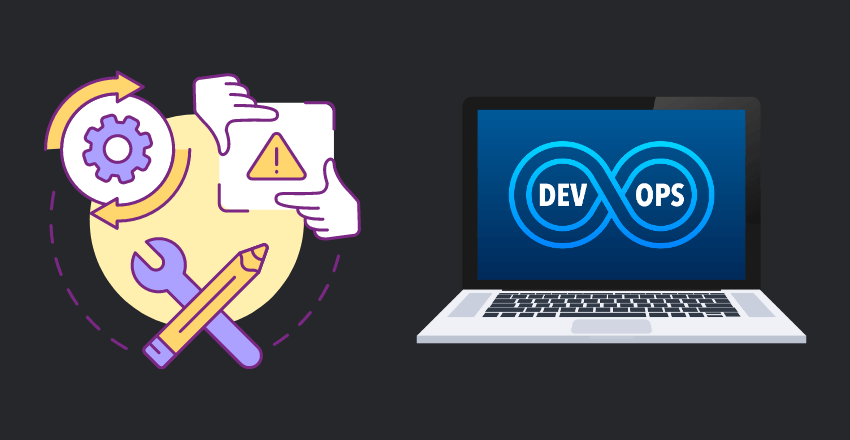
Compliance in DevOps is not without challenges. These challenges can be significant but are manageable with the right approach and tools.
Vulnerability Management
Managing vulnerabilities in a fast-paced DevOps environment is challenging. Automation and continuous monitoring are essential. Identify and mitigate vulnerabilities promptly. This requires a combination of tools and processes designed to catch issues early.
Identity and Access Management
Ensuring that only authorized users have access to systems and data is critical. Implement robust identity and access management controls. This helps prevent unauthorized access and ensures compliance.
Data Security
Protecting sensitive data is a primary concern in DevOps. Compliance frameworks often require stringent data security measures. Integrate these measures into the DevOps pipeline. This ensures that data remains secure throughout the development process.
Best Practices for DevOps Compliance
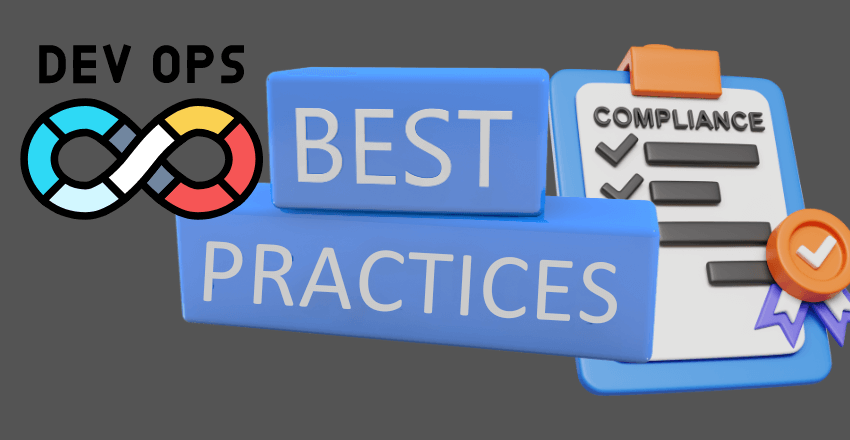
Following best practices can streamline compliance efforts. These practices embed compliance into the DevOps workflow, making it a natural part of the process.
Shift Compliance Left
Shifting compliance to the left means integrating compliance checks early in the development process. This approach helps identify and address issues before they become costly to fix.
Role-Based Access Control (RBAC)
Implement RBAC to ensure only authorized personnel can access and modify systems. This control is crucial for maintaining security and compliance.
Continuous Integration and Continuous Deployment (CI/CD)
Adopt CI/CD practices to automate and streamline compliance. Continuous integration ensures that each change is tested for compliance before it is merged. Continuous deployment ensures that these changes are deployed in a controlled and compliant manner.
The Impact of Ignoring Compliance
Ignoring compliance can lead to severe consequences. Legal repercussions, financial penalties, and loss of customer trust are just the beginning. The long-term impact on reputation and operational stability can be devastating.
Legal Repercussions
Non-compliance can result in legal action. This can lead to hefty fines and sanctions. In some cases, it can even result in the shutdown of operations.
Example: GDPR Violations
Consider the General Data Protection Regulation (GDPR) in the European Union. GDPR requires companies to protect the personal data and privacy of EU citizens. Non-compliance with GDPR can result in fines of up to 4% of annual global turnover or €20 million, whichever is greater. In 2019, British Airways was fined £183 million for a data breach that compromised the personal data of around 500,000 customers. This breach occurred because of a lack of adequate security measures, a clear violation of GDPR requirements.
In a DevOps environment, compliance with regulations like GDPR should be integrated into every stage of the development lifecycle. Automating compliance checks can help ensure that data handling practices meet regulatory standards. Continuous monitoring tools can alert teams to potential breaches in real-time, allowing for quick mitigation.
Financial Penalties
Financial penalties are a common consequence of non-compliance. These can be substantial, impacting the bottom line significantly.
Example: PCI DSS Non-Compliance
The Payment Card Industry Data Security Standard (PCI DSS) mandates stringent security measures for companies handling credit card information. Non-compliance can result in penalties ranging from $5,000 to $100,000 per month. In 2013, Target Corporation faced a massive data breach that exposed the credit card information of over 40 million customers. The breach cost Target over $18.5 million in a multistate settlement and significantly more in remediation costs.
To avoid such financial penalties, DevOps teams should implement robust security practices from the outset. Infrastructure as Code (IaC) can ensure that security configurations are consistently applied. Tools that automatically scan for vulnerabilities in code and infrastructure can catch issues early, reducing the risk of non-compliance.
Loss of Customer Trust
Customers expect companies to handle their data responsibly. Non-compliance can lead to data breaches. This erodes customer trust. Once lost, trust is hard to regain.
Example: Facebook-Cambridge Analytica Scandal
In 2018, the Facebook-Cambridge Analytica scandal revealed that the personal data of millions of Facebook users had been harvested without consent and used for political advertising. This breach of trust led to a significant loss of user confidence in Facebook. The company’s reputation took a major hit, and user growth stalled as a result.
In DevOps, maintaining customer trust involves more than just technical measures; it requires a cultural shift towards transparency and accountability. Implementing end-to-end encryption, strict access controls, and regular security audits can help protect user data. Furthermore, clear communication with users about how their data is used and protected is essential in building and maintaining trust.
Long-term Impact on Reputation and Operational Stability
The long-term impact on reputation and operational stability can be devastating. Non-compliance doesn’t just result in immediate financial and legal consequences. It can have a lingering effect on a company’s reputation and operational effectiveness.
Example: Equifax Data Breach
In 2017, Equifax, one of the largest credit reporting agencies, suffered a data breach that exposed the personal information of 147 million people. The breach was attributed to a failure to patch a known vulnerability. The aftermath included a $700 million settlement with the Federal Trade Commission and ongoing damage to Equifax’s reputation. Customers lost confidence in Equifax’s ability to protect their data, leading to a decline in business.
Insight from DevOps
To avoid such long-term impacts, DevOps teams must prioritize compliance as a core aspect of their workflow. This includes regular training for all team members on compliance requirements and best practices. By embedding compliance into the DevOps pipeline, organizations can ensure that every change is automatically checked for adherence to relevant standards, significantly reducing the risk of oversight.
Ignoring compliance can lead to severe consequences that extend beyond immediate legal and financial penalties. Non-compliance can result in hefty fines, significant financial penalties, loss of customer trust, and long-term damage to reputation and operational stability. Integrating compliance into the DevOps workflow from the beginning, organizations can mitigate these risks, ensuring safer processes, better products, and a more secure and trustworthy relationship with their customers.
Final Thoughts

Treating compliance as an afterthought in DevOps is a risky business. Incorporate compliance from the start. Use automation and continuous auditing. Foster a culture of shared responsibility. Maintain thorough documentation. Address challenges proactively. By doing so, you’ll create safer processes, better products, and a happier team.
Compliance should be seen as a vital component of the DevOps process. Not as a separate or secondary concern. When done right, it enhances the quality and security of your software. It protects your organization from legal and financial repercussions. Most importantly, it builds trust with your customers.
James is an esteemed technical author specializing in Operations, DevOps, and computer security. With a master’s degree in Computer Science from CalTech, he possesses a solid educational foundation that fuels his extensive knowledge and expertise. Residing in Austin, Texas, James thrives in the vibrant tech community, utilizing his cozy home office to craft informative and insightful content. His passion for travel takes him to Mexico, a favorite destination where he finds inspiration amidst captivating beauty and rich culture. Accompanying James on his adventures is his faithful companion, Guber, who brings joy and a welcome break from the writing process on long walks.
With a keen eye for detail and a commitment to staying at the forefront of industry trends, James continually expands his knowledge in Operations, DevOps, and security. Through his comprehensive technical publications, he empowers professionals with practical guidance and strategies, equipping them to navigate the complex world of software development and security. James’s academic background, passion for travel, and loyal companionship make him a trusted authority, inspiring confidence in the ever-evolving realm of technology.
